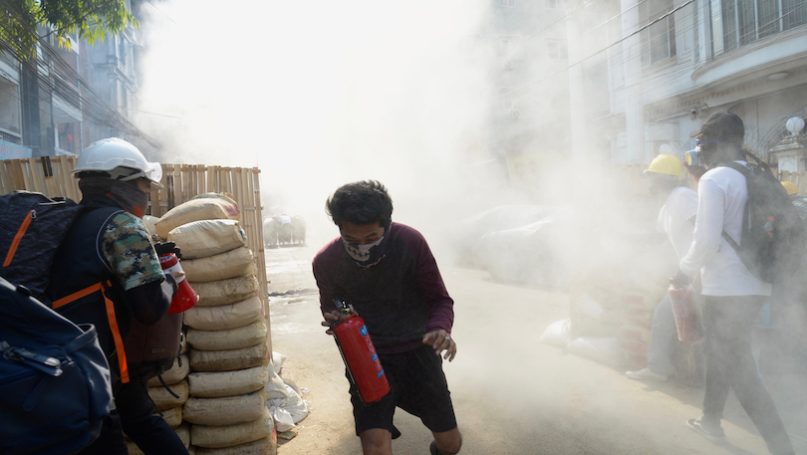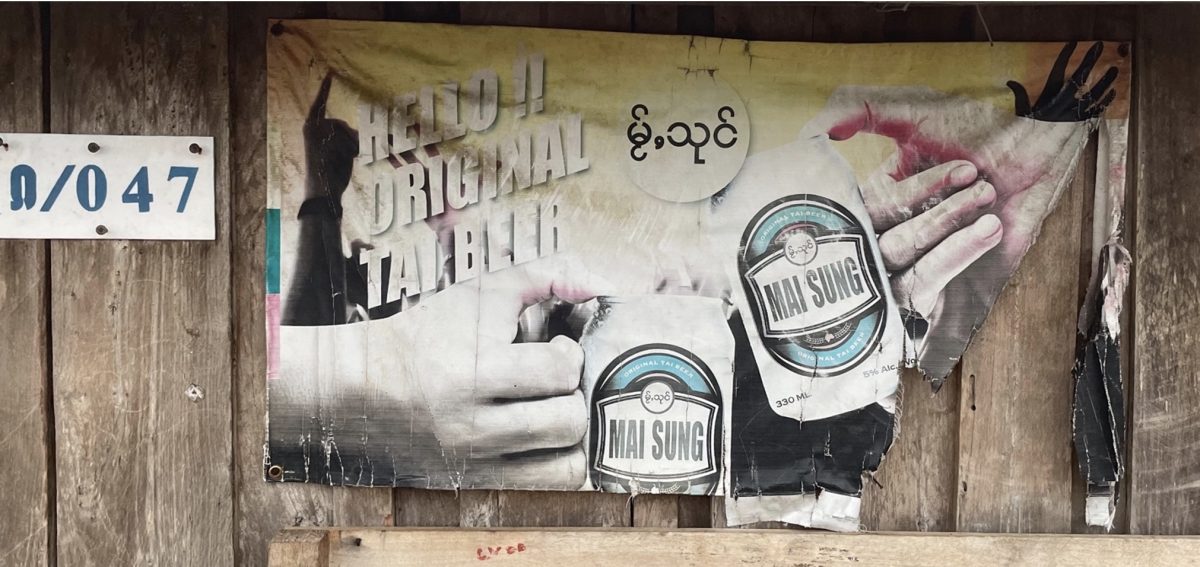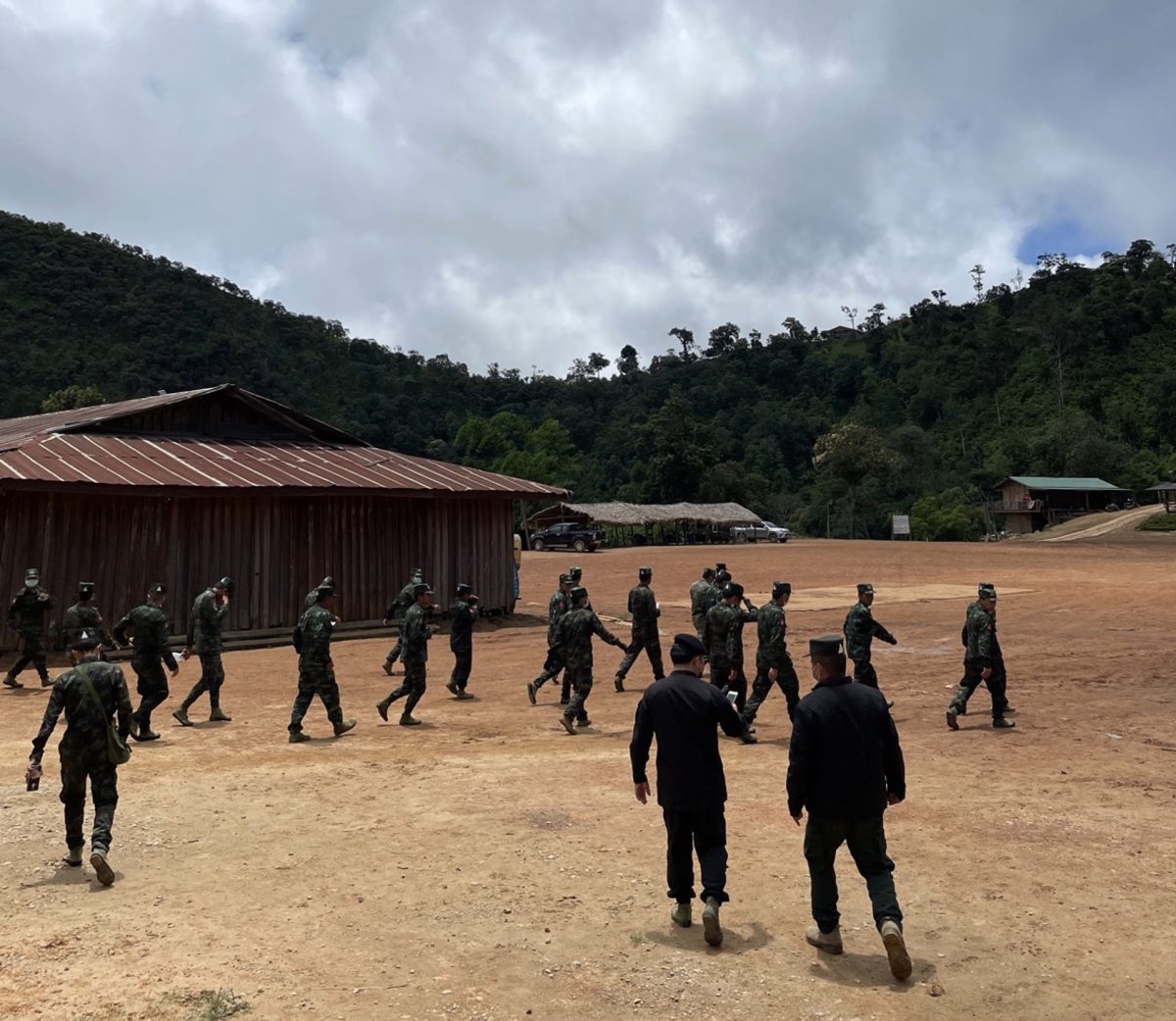
Exactly how well do we understand civil wars? How do we know that concepts and theories that we establish fit with the realities on the ground? Our positionality as researchers may create perception gaps between how we understand the dynamics of civil wars, and how local actors that live through civil wars perceive them. This may have consequences on our understanding and measurement of civil war dynamics. Drawing from my fieldwork experiences in the Myanmar-Thai border with Ethnic Armed Groups (EAOs) active in Myanmar, I argue that qualitative fieldwork taking a relational approach can close the perception gap in understanding civil wars. It allows us to see the conflict as close to those that experiences them first-hand, thereby producing empirical data that is as close to reality as possible. Furthermore, close interaction with the participants throughout the research process may better empower research participants as co-generators of knowledge.
The positionality problem of civil war researchers
It is not an exaggeration to claim that many civil war researchers are from societies that remain relatively peaceful and free from civil conflicts. Indeed, the percentage of countries at war hovered around 10% in 2020, meaning that the probability of a scholar experiencing a civil war is already a rare instance. Adding this to the observation that scholars from the Global North dominate the scholarly conversation, the likelihood of a given scholar innately understanding what civil wars look, feel, and sound like, is low.
This means that how we perceive concepts tied to dynamics of civil war and rebel governance may be decoupled from the reality perceived by those that live them, as I have experienced during my fieldwork. Once I was better exposed to the conflict in Myanmar after a preliminary fieldwork, it was evident that analytical concepts that we rely on for theory building did not fit well with the realities on the ground. For instance, contrary to contemporary analytical framework on rebel group finances (for example, see Weinstein 2012 or Sarkar and Sarkar 2016) that largely focus on taxation and extractable resources as mutually exclusive, I learned that many EAOs in Myanmar engage in both taxation and resource extraction for revenue generation. What is more, they also engage in large, capital-intensive formal businesses at various levels to finance their movement, which is neither an instance of taxation nor an instance of resource extraction. Since then, understanding EAOs’ strategy in operating capital-intensive formal businesses has become my own thesis project.
What is more, a researcher may unknowingly attempt to fit pre-built perceptions that may not resonate with the reality on the ground. For instance, an EAO officer questioned the existing scholarship’s use of the term rebels in our research, pointing out that the word entails images of brutish lawlessness and a lack of organisation. As he raised, this is not an accurate depiction of EAOs; many of them field well-trained troops, provide public services, and operate in a military hierarchy similar to state security forces.
Misinterpretations caused by this perceptual gap may have direct consequences on the empirical substance of our research. It may lead to miscoding variables, such as towns and military bases. It could lead us to wrongly assume the effect of different wartime behaviours, such as recruitments, taxation, or revenue generation, by misunderstanding how they are done locally. Shortly put, our positionality problem may lead us into doing poor work.
Relational qualitative fieldwork as a method to bridge the perceptual gap
How can we mitigate this problem? Qualitative fieldwork taking Lee Ann Fujii’s relational approach, which puts local actors and their knowledge at the centre and draw richer data through building relationships with our participants, can bridge this gap between perceived understanding of a concept and how the concept works on the ground.
Taking inspiration from Fujii’s approach to research, researchers may attempt to build a relationship with participants to conduct interviews in multiple sessions, and to better understand the participants to see where their insights came from. A researcher may nudge participants to describe how certain instances may play out on the ground (e.g. ‘what do you do’ if a family in a village under your control has sent their child to a rival armed group?) or seek clarifications on how specific concepts are seen by them (e.g. how is ‘recruitment’ done for your group?) to check whether our understanding is like theirs. This can be done as a part of formal interviewing process, or whilst interacting with participants outside of the formal interviewing process—after receiving their informed consent to research participation, of course. By taking participants and our interactions with them seriously, we can draw out richer knowledge about the conflicts that we study and help us notice the possible flaws in our own knowledge.
Once I realised the perception gap on civil war dynamics in Myanmar, I recalibrated my research activities towards a more relational approach. In addition to formal interview sessions, I aimed to build relationships with my research participants to ask as many questions as possible in multiple occasions to better understand how EAO members saw the world. In specific, I made a persistent and genuine effort to present myself as a ‘student’ of the Myanmar conflict in front of my participants as well as to get to know them personally and develop a friendship on some occasions. I wagered that empowering participants as ‘teachers,’ and gaining incremental trust through relationship building would contribute towards generating a theory that best fits the realities on the ground.
As I built relationships with my participants, I pestered them with questions during casual conversations to understand the Myanmar conflict from their eyes. Some of these questions included:
- What do you exactly mean when you say the jungle, or the mountain?
- What is the difference between a military brigade and a military column?
- What is the tax rate on different businesses?
- Are these jackfruits taxable?
- Why don’t grocers in your headquarters sell condoms?
- Who fights better, your army or the Myanmar Military, and why?
- How much money do you make per month?
This proved to be a fruitful exercise. Gaining trust as a ‘novice with many questions for his mentors’ provided an opportunity to discover a richer insight into the war not readily available to outsiders. Questions on brigades and columns led to a detailed discussion on the governance structure of an EAO not found in existing sources. I also learned the pay grade for the rank and file of EAOs that I interacted with, as well as the reasons why they regard themselves as better fighters than the Myanmar Military. These insights played a substantial role in putting together the narrative of the war and the decision-making logic of various EAOs.
Normative value beyond better empirical work
There is also a normative value to taking a relational approach to qualitative fieldwork. Building from local knowledge and staying sensitive to the dignity of local actors as co-generators of knowledge brings the participants back into the centre of research as co-generators of research, not mere research subjects observed by an outside observer.
While it is rarely considered during the research ethics protocol review, there is potential harm in so called ‘parachute research,’ a term coined to field research practise that fails to not only meaningfully engage with local research participants, but also marginalise their role as data repositories. Such practises potentially pose ethical concerns and material harm to research participants. Indeed, some of my research participants expressed emotional harms that they felt from engaging with researchers. For instance, an EAO officer worried that I would not maintain a friendship that I built with him and that he would see me “disappear in a few weeks.” By saying so, the officer hinted that many researchers came before me, extracted information, and went home without regard to the relationship that they built with him in the process.
Pursuing a relational approach to qualitative interviews can mitigate such harm felt by research participants. It demonstrates that we indeed see them as our peers, and not just soundbites from one-off interviews. In addition, the process invites participants to become active research collaborators by demonstrating that we, as researchers, value their insights for theory generation. Indeed, I found my research participants to be empowered by closely interacting with a researcher. Many of my junior-level participants were pleasantly surprised that a doctoral student would like to hear their opinions and were keen to share their perspectives. In many cases, EAO officers took the initiative in my research project by suggesting potential interviewees, as well as digging out publications, photographs, and anecdotes that they deemed relevant to my research. In all cases, close interaction with participants based on building a genuine relationship with them seems to have empowered many participants as co-generators of knowledge.
Conclusion: Bringing (relational) qualitative fieldwork back in
What is the value of qualitative fieldwork in civil war studies? In this piece, I argued that carefully planned qualitative fieldwork that is sensitive to local voices shared by local actors can uncover knowledge that was lost in transcription and bridge any perceptual gaps that may have existed between us. Doing so can also empower research participants as co-generators of knowledge and mitigate harm done by extractive data collection to local communities that play a critical role in generating the data that we seek.
That said, it is essential to stress that fieldwork should be conducted only after a researcher can mitigate the risks and vulnerabilities of everyone involved in the research process. The potential cost of conducting social science research has increasingly become risk of serious harm to researchers and their participants. This risk is especially amplified in conflict affected areas. No research exercise is worth causing grave physical and emotional harm to the researcher or the research participants. Risks and vulnerabilities involved in research must be carefully identified and mitigated before conducing fieldwork in conflict affected areas.
If a researcher can safely conduct fieldwork using relational approaches, carefully mitigating potential risks and vulnerabilities facing both the researcher and research participants, it could be an invaluable exercise that can greatly contribute to our research of civil wars.
Figure 1: A promotional poster of Maisoong Beer, an RCSS-invested beer brand that is now discontinued. Image by Jae Hyun Park.

Figure 2: new RCSS recruits during their basic training. Image by Jae Hyun Park.

Further Reading on E-International Relations
- The Myanmar Conundrum: What Matters, and What Matters Less
- Fieldwork and the Coronavirus Pandemic
- What Might Have Been Lost: Fieldwork and the Challenges of Translation
- The Limits of Control? Conducting Fieldwork at the United Nations
- Fieldwork, Feelings and Failure to Be a (Proper) Security Researcher
- Building on Ruins or Patching up the Possible? Reinscribing Fieldwork Failure in IR as a Productive Rupture